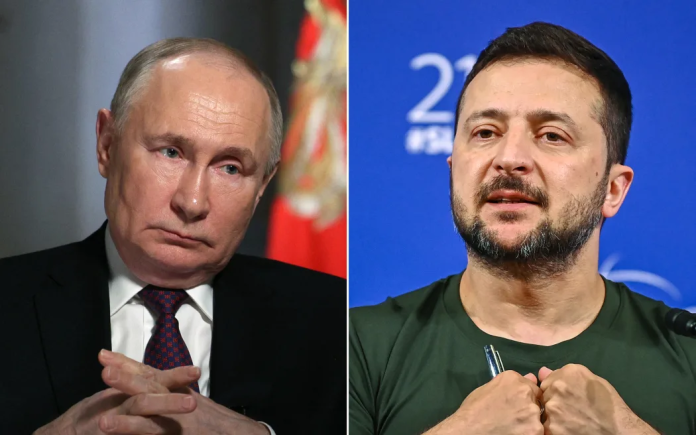Delegations from Russia and Ukraine arrived at Istanbul’s Dolmabahçe Palace in Turkey on Friday for the first direct talks suspended in 2022.
The talks, mediated by Turkey and attended by US observers, aimed to explore pathways to a ceasefire but quickly revealed entrenched divisions between Kyiv and Moscow. Russian Foreign Ministry spokeswoman Maria Zakharova said the point of the talks was to “eliminate the root causes of the conflict, to reach the establishment of a long-term lasting peace for the historical perspective.”
Ukrainian Defence Minister Rustem Umerov was appointed head of the Ukrainian delegation. He will be accompanied by First Deputy Foreign Minister Sergiy Kyslytsya, Deputy Chairman of the Security Service of Ukraine (SSU) Oleksandr Poklad, First Deputy Chairman of the Foreign Intelligence Service Oleh Luhovskyi, Deputy Head of the AFU General Staff Oleksiy Shevchenko, Deputy Head of the Main Directorate of Intelligence Vadym Skibitskyi, Deputy Head of the Air Force Command Staff Yevhen Shynkariov, Deputy Head of the Navy Command Oleksandr Diakov and others.
Umerov was authorised to involve employees of state bodies, enterprises, institutions and organisations in the work of the delegation in coordination with their heads, as well as scientific advisers and experts. Political experts note that Ukrainian President Volodymyr Zelensky’s decree on the composition of the delegation was published only on 15 May, the day when the negotiations were supposed to start.
Zelensky, who met Turkish President Recep Tayyip Erdoğan in Ankara earlier this week, accused Russia of deploying negotiators lacking “decision-making power” and dismissed Moscow’s delegation as a “sham,” despite his own decree banning talks with Russian President Vladimir Putin.
The Russian delegation includes Russian Presidential Aide Vladimir Medinsky as head of delegation, Deputy Foreign Minister Mikhail Galuzin, Head of the Main Directorate of the General Staff of the Russian Armed Forces Igor Kostyukov and Deputy Defence Minister Alexander Fomin.
Russia’s team said their mandate aims to address the “root causes” of the conflict, including demands for Ukrainian neutrality and recognition of territorial gains made since 2014. Medinsky framed the talks as a “continuation” of failed 2022 negotiations, insisting on Ukraine’s acceptance of Moscow’s terms for “sustainable peace.” He also rejected Ukraine’s proposal for an immediate truce, insisting negotiations must precede any cessation of hostilities.
International reaction and diplomatic manoeuvres
The US meanwhile set a sceptical tone for the talks as Secretary of State Marco Rubio said no breakthrough was expected without a direct meeting between Presidents Donald Trump and Putin. Trump, who previously did not rule out trip to Turkey to join talks, is likely to return to the United States.
European leaders rallied around Kyiv, with German Chancellor Friedrich Merz announcing new EU sanctions against Russia, due on 20 May, in response to Putin’s absence from the talks.
Turkey, hosting the talks at Istanbul’s Dolmabahçe Palace, sought to bridge the gap, with Foreign Minister Hakan Fidan emphasising the need for “concessions” from both sides.
